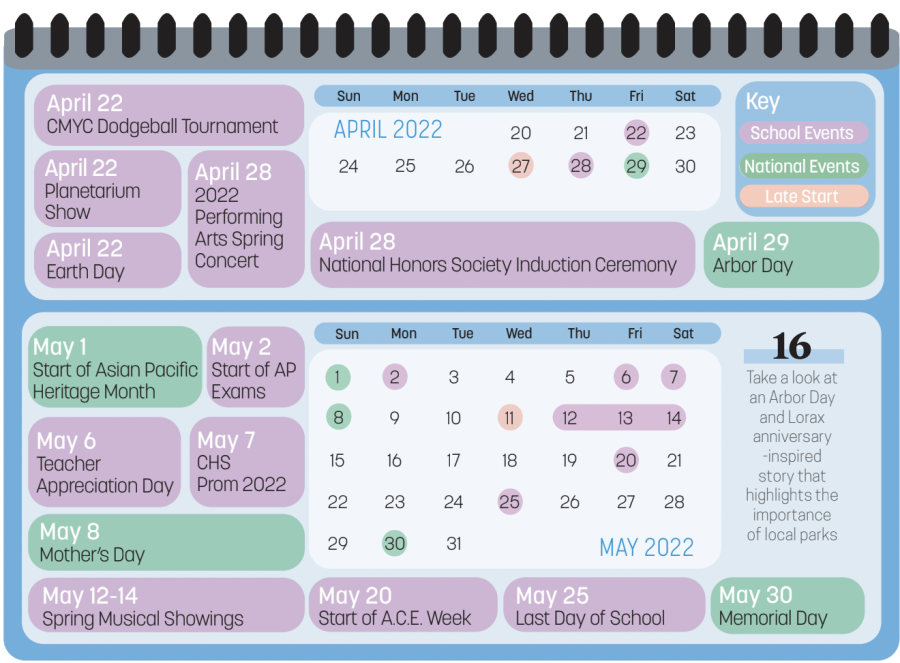As AP exam season begins on May 6, many students will prepare by taking previously released AP exams and by asking their older friends who have already battled the exam for advice on the test.
For senior Rose Thompson, though, this is not a possibility as she prepares for the AP Biology exam. Last year, College Board released a renovated curriculum and exam for AP Biology, AP Latin and AP Spanish Literature that was implemented at the start of the school year. Students enrolled in these courses will serve as “guinea pigs” for the College Board’s plan to eventually rewrite the curriculum and exam for all AP courses.
According to a 2012 U.S. News & World Report article, titled “High School Students Need to Think, Not Memorize,” the goal behind these changes is to better equip high school students for the ever-changing difficulties of college and a competitive world economy. The overall foundation behind these changes is to emphasize “analytical skills, a deeper understanding of key concepts and applied knowledge rather than a simple recall of facts.”
For Thompson, these curriculum changes have positively influenced her AP Biology course by narrowing the focus throughout each chapter.
“We definitely learn a lot more about specific subjects, and it’s really challenging, but I think it’ll help in the long run. I mean we get more knowledge, and it feels good to actually be learning in-depth instead of kind of skimming over and being like, ‘Okay, I kind of know about that,’” Thompson said.
AP Biology teacher Jeff Young said he agrees that the new curriculum is more beneficial for students, whereas the old curriculum was unrealistic due to the enormous amount of information students were expected to learn within the course of one school year.
“The difference is that (in) the old AP Bio curriculum you had to learn an inch deep and a mile wide; you had to learn a little bit about every single topic. And now it’s more like, you’re learning a mile deep but it’s like pick-and-choose which topics you learn in-depth,” Young said.
For AP Spanish Literature, curriculum changes involve a more thematic approach that incorporates art, history and culture into the literature, according to world language teacher Elizabeth Sprague.
Although Sprague said she thinks the revamping is a good change, she said it is still a work in progress that comes with challenges for both teachers and students. She said it is more difficult to prepare students for the AP Spanish Literature exam, as the College Board has not released any of the rewritten AP exams.
“There’s not a big bank of prior test questions that necessarily correlate with the way that they’ll be tested. There are fewer resources, I would say. They’re out there, but you have to search a little harder to find them,” Sprague said.
Similarly, Young said he is unsure what to expect of the AP Biology exam. However, he said he is not too worried about the students’ test scores.
“It makes me a little bit nervous, but I mean, as long as we’re covering the learning objectives…they should be prepared as ever,” Young said.































![British royalty are American celebrities [opinion]](https://hilite.org/wp-content/uploads/2024/03/Screenshot-2024-03-24-1.44.57-PM.png)




















![Review: “The Iron Claw” cannot get enough praise [MUSE]](https://hilite.org/wp-content/uploads/2024/04/unnamed.png)
![Review: “The Bear” sets an unbelievably high bar for future comedy shows [MUSE]](https://hilite.org/wp-content/uploads/2024/03/unnamed.png)
![Review: “Mysterious Lotus Casebook” is an amazing historical Chinese drama [MUSE]](https://hilite.org/wp-content/uploads/2024/03/0.webp)
![Thea Bendaly on her Instagram-run crochet shop [Biz Buzz]](https://hilite.org/wp-content/uploads/2024/03/IMG_0165-1200x838.jpg)
![Review: Sally Rooney’s “Normal People,” is the best book to read when you are in a time of change [MUSE]](https://hilite.org/wp-content/uploads/2024/03/20047217-low_res-normal-people.webp)
![Review in Print: Maripaz Villar brings a delightfully unique style to the world of WEBTOON [MUSE]](https://hilite.org/wp-content/uploads/2023/12/maripazcover-1200x960.jpg)
![Review: “The Sword of Kaigen” is a masterpiece [MUSE]](https://hilite.org/wp-content/uploads/2023/11/Screenshot-2023-11-26-201051.png)
![Review: Gateron Oil Kings, great linear switches, okay price [MUSE]](https://hilite.org/wp-content/uploads/2023/11/Screenshot-2023-11-26-200553.png)
![Review: “A Haunting in Venice” is a significant improvement from other Agatha Christie adaptations [MUSE]](https://hilite.org/wp-content/uploads/2023/11/e7ee2938a6d422669771bce6d8088521.jpg)
![Review: A Thanksgiving story from elementary school, still just as interesting [MUSE]](https://hilite.org/wp-content/uploads/2023/11/Screenshot-2023-11-26-195514-987x1200.png)
![Review: When I Fly Towards You, cute, uplifting youth drama [MUSE]](https://hilite.org/wp-content/uploads/2023/09/When-I-Fly-Towards-You-Chinese-drama.png)
![Postcards from Muse: Hawaii Travel Diary [MUSE]](https://hilite.org/wp-content/uploads/2023/09/My-project-1-1200x1200.jpg)
![Review: Ladybug & Cat Noir: The Movie, departure from original show [MUSE]](https://hilite.org/wp-content/uploads/2023/09/Ladybug__Cat_Noir_-_The_Movie_poster.jpg)
![Review in Print: Hidden Love is the cute, uplifting drama everyone needs [MUSE]](https://hilite.org/wp-content/uploads/2023/09/hiddenlovecover-e1693597208225-1030x1200.png)
![Review in Print: Heartstopper is the heartwarming queer romance we all need [MUSE]](https://hilite.org/wp-content/uploads/2023/08/museheartstoppercover-1200x654.png)























![Review: Ladybug & Cat Noir: The Movie, departure from original show [MUSE]](https://hilite.org/wp-content/uploads/2023/09/Ladybug__Cat_Noir_-_The_Movie_poster-221x300.jpg)

![Review: Next in Fashion season two survives changes, becomes a valuable pop culture artifact [MUSE]](https://hilite.org/wp-content/uploads/2023/03/Screen-Shot-2023-03-09-at-11.05.05-AM-300x214.png)
![Review: Is The Stormlight Archive worth it? [MUSE]](https://hilite.org/wp-content/uploads/2023/10/unnamed-1-184x300.png)



